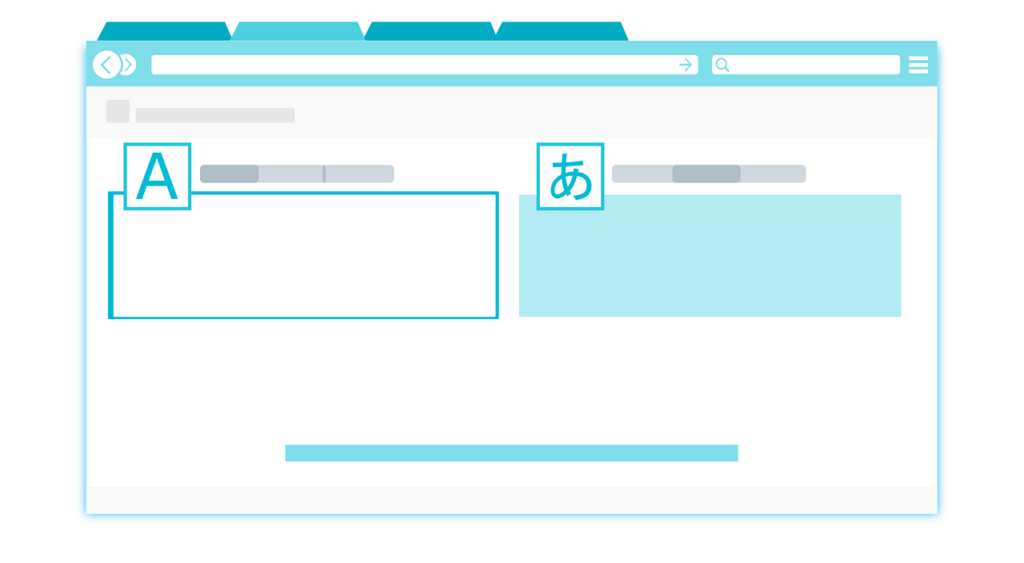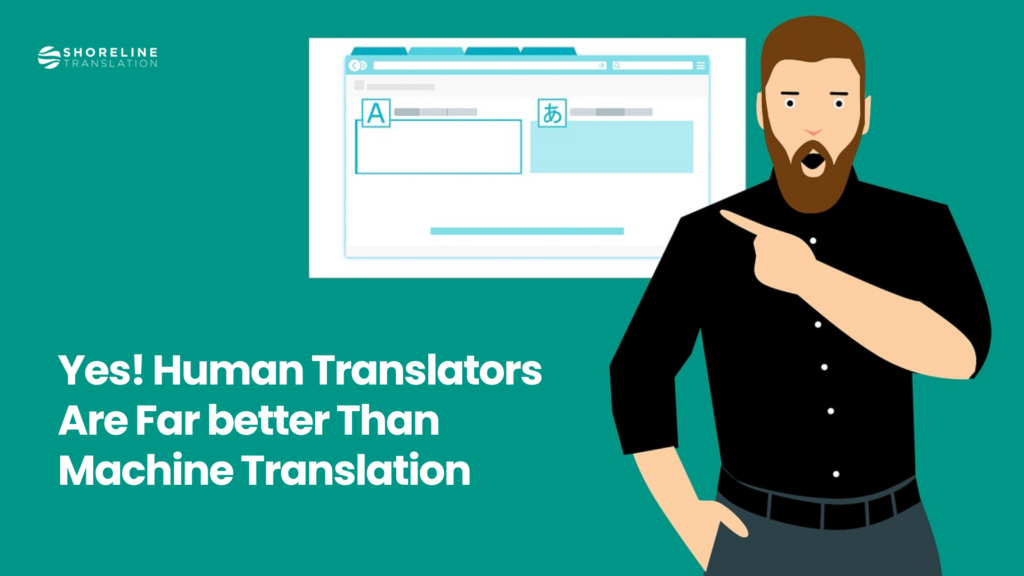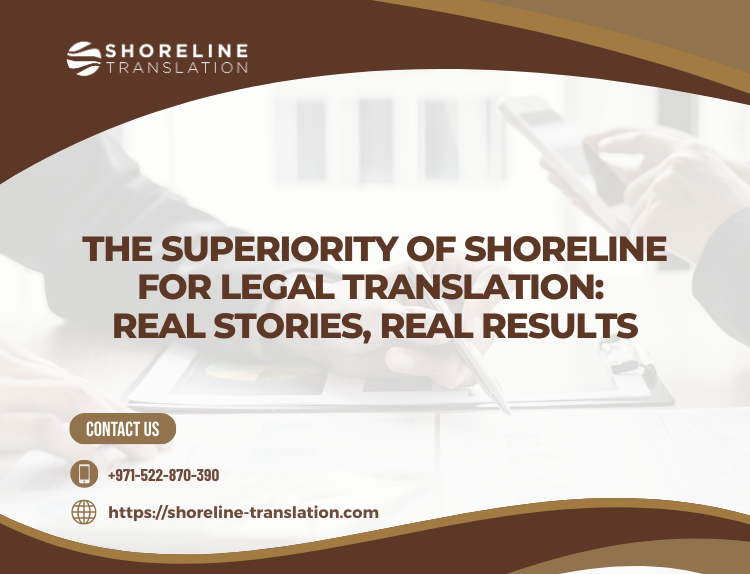Technology has come a long way, indeed. Thanks to the advancements in technological sectors like machine learning, computers can now initiate tasks like interpreter services and Arabic translation, such as you’d find in a Dubai translation agency.
In such cases, translation services in Dubai get to experience more speed, efficiency, and quality than machine translators. That has led many to believe computers are poised to replace humans for quality translation services.
But is the transition from humans to machines feasible, especially for a professional translation organization? That’s unlikely.
If you’re in Dubai, you’ll quickly realize how personal and detailed Arabic translation and interpreter services need to be. Also, any translation company in Dubai often has to cater to individual and corporate clients and requires people to handle the English translation aspect.
We’ve found objective reasons to believe that human translators are still better suited for Dubai translation services.
Table of Contents
ToggleWhat’s Machine Learning for a Translation firm?
Before we talk about the limitations of machine translation, it’s best to understand what machine learning models were designed to do for a Dubai translation agency in the first place.
These engines are special software packages that run on a base algorithm. Translation services in Dubai can use the algorithm to code language inputs from a point and decode the desired outputs on the other end.
In their early development, machine learning models used a Rule-Based Machine Translation (RBMT) technique for language translation. But now, they have switched to a more modern SMT (Statistical Machine Translation) technique.
The new system meant that a translation company in Dubai didn’t need a bulky linguistic manual for their reference and proofreading services. That’s because the ML model learned new language rules by itself.
Limitations to ML-Driven Dubai Translation
Despite how sophisticated machine learning has gotten, a translation company in Dubai must consider it subject to the same fundamental limitations of digital and electronic devices.
In other words, they can make mistakes humans wouldn’t, giving the latter group an edge. This applies to copywriting services and any other related task the company can handle for their individual and corporate clients.
Below are some key reasons human translators are far better than computers at delivering quality language translation services.
Why Should You Consider Dubai Translation Company over Machine Translation?

1. Language Context/Localization
One of the most significant issues with computer-generated translations is that the application can’t tell what context the output language has to reflect.
For instance, Abu Dhabi translation services that offer Arabic translation services would realize that the ML model can’t tell if it’s intended for Dubai or another Arab-speaking nationality.
In such an instance, Arabic would have a different context depending on the area that recognizes it as a language. However, the computer has no way of representing that. Translation offices are often forced to bring someone with a deeper knowledge of language barriers.
That can pose a problem to any large-scale translation outfit and professional interpreter services. An error or deviation from the intended locality or context can change the entire purpose and meaning of the document.
On the other hand, for sensitive legal documents, translation companies can quickly avoid such “lost in translation” incidents with human legal translators. The same would apply to proofreading services as well.
2. Word Semantics
Another obvious reason why ML models can’t fully replace humans in language translation is with word semantics. Computers can’t properly handle the different meanings of a single word and correctly use the appropriate one when necessary.
Homophones, homonyms, and other semantic features of language would make quality translation difficult for even advanced Dubai translation algorithms. Also, proofreading services that rely on ML will have the same issue.
For instance, lead (to guide forward) and lead (to open into another space) are similar English words that don’t translate the same in other languages.
The computer has no way of providing simultaneous interpretation on the right “Lead” and would most likely go with the wrong one.
Making such a mistake can be harmful to any translation agency in Dubai, especially one with technical expertise to finish a proper translation job for Abu Dhabi clients.
Granted, no translation agency in Dubai would find it easy to hire only people to handle its enormous translation projects. However, they can boost their translation outputs significantly with the right balance between specialized translation software and skillful translation experts.
That’s why organic translation companies have the skilled personnel to read source texts in their usage contexts and better represent word semantics appropriately in their translation.
3. Organic Tone
Machine learning models have become more accurate and sophisticated, especially in niche areas like the translation services in Dubai. However, the average observer can still tell when a translated document comes from a computer program instead of a human.
That’s because language translation algorithms lack any form of organic tone in their operations.
While computer-translated documents may have pin-sharp accuracy, they won’t be as free-flowing as the material processed by a human.
An observer may also notice the rigid, stilted expressions throughout the text. That might compel the client to pay for extended proofreading services to improve the document.
You may point out that translation services in Dubai and other areas don’t need to evoke organic properties as much as in the creative writing industry.
However, companies still need the “human touch” to better communicate with individual and corporate clients and help them to understand their translated documents better.
4. Cost Factor
For many professional translation companies, cost remains a massive deciding factor against machine learning models. Regardless of the underlying technology used, ML language translators can get expensive to deploy, especially in the long term.
Since the translation process isn’t a “set-and-forget” affair, even the best translation company has to account for multiple revisions and editing overheads. Beyond that, the translation program has to get optimized for the languages in use. You may find yourself spending a lot of money at the start of the implementation.
These attendant costs quickly add up and would lead you to seriously its cost-effectiveness in the project management plans. By contrast, humans can handle editing, optimization, and corrections on a more modular scale, saving you money.
5. Technical Terminology Recognition
Translation machines can deliver the desired text output once it learns the right language vocabulary. However, such an arrangement doesn’t include technical terms. That’s because these words are industry-specific and may not appear in the dictionary.
As a result, ML language translation programs would have a harder time recognizing and handling technical terms.
An instance is a document containing pharmaceutical terms. The computer can’t properly translate words like “fentanyl” or “hydrogen permanganate”. What’s more, translation agencies can only barely overcome the problem themselves, as the translator would need another person from the industry to help with the technical words.
That’s why it’s fairly common to find legal translation companies commission professional translators with the technical expertise to handle the terms.
Wrapping Up
Language translation is a specialized skill used in sectors like Education, Healthcare, and Legal translation services in Dubai. Whether it’s proofreading services or bespoke translation in Dubai, many companies often debate whether computer programs would do a better job at translating than humans. It turns out that humans are still the far superior choice in the long run.
Above are some reasons why machine language translation still has a long way to go in catching up to the organic and more appropriate human alternative.
For any translation company, it’s best not to shut off machine learning entirely. You can seamlessly include them in your current workforce to complement output and proffer assistance when needed.






